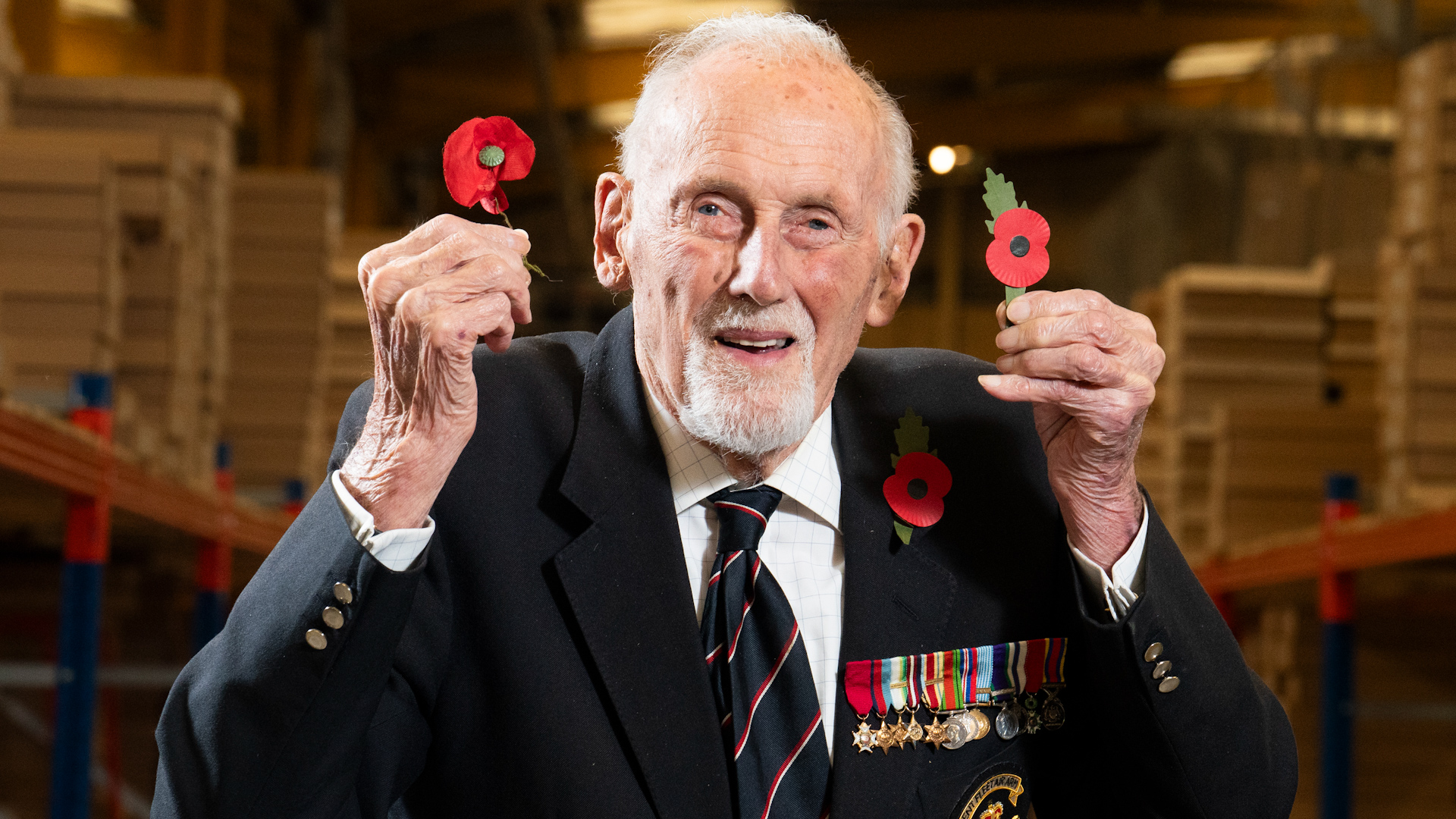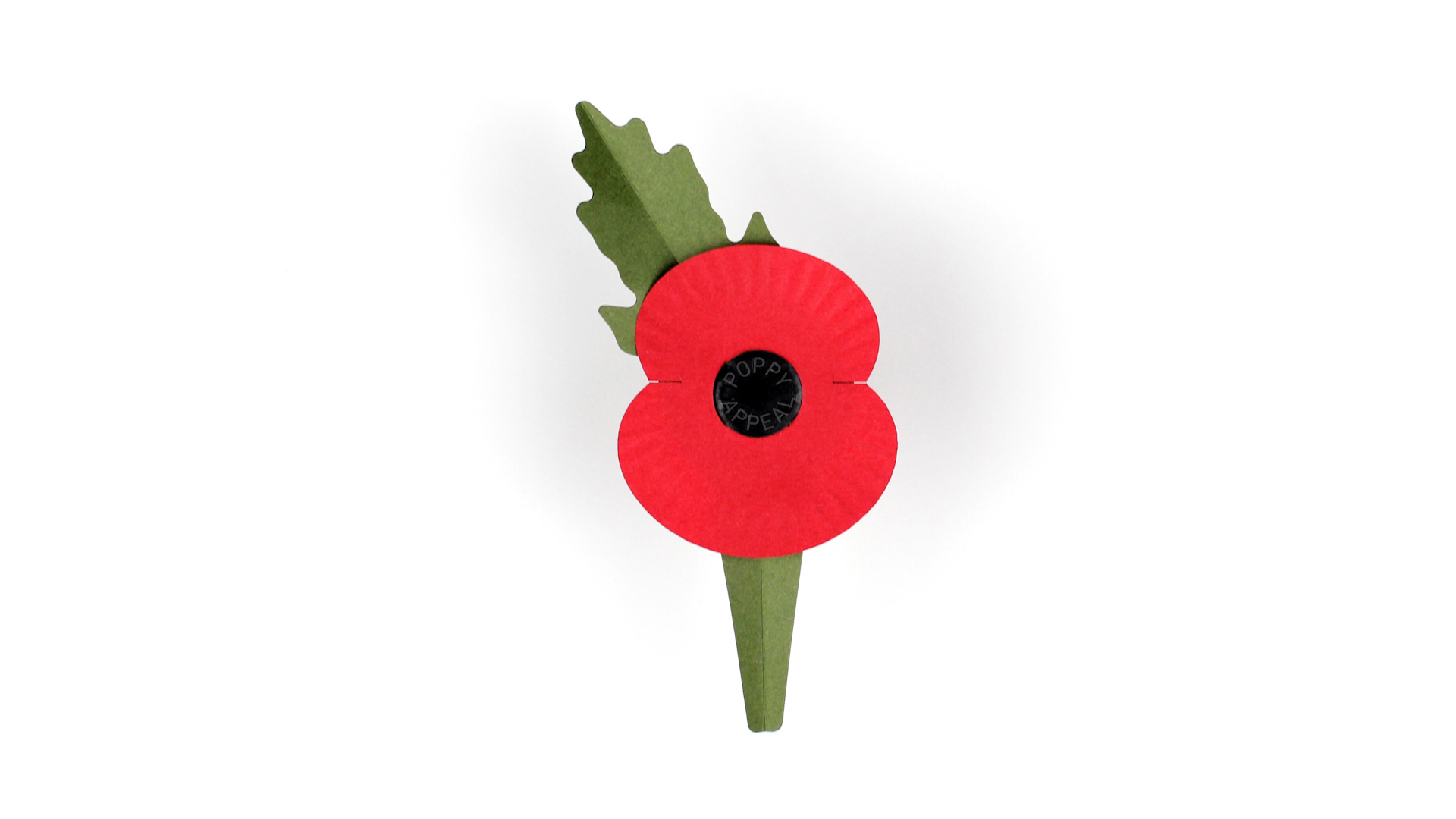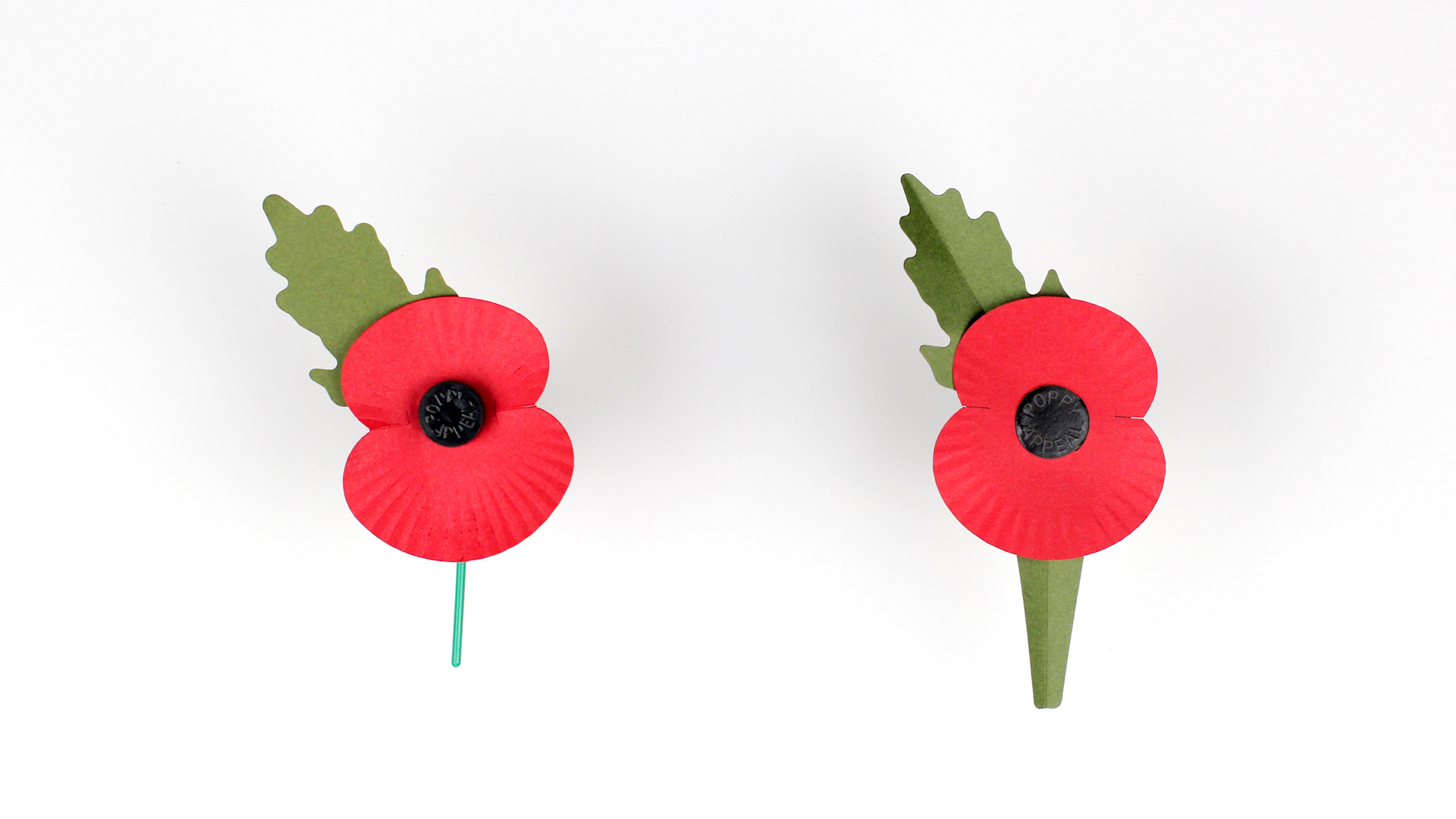
Remembrance poppies undergo green makeover to become plastic-free

Remembrance poppies are plastic-free and recyclable for the first time as the Royal British Legion launches its annual Poppy Appeal.
It is the first redesign of the historic symbol of remembrance in 28 years.
The Royal British Legion (RBL), which produces 170,000 poppies a day to meet the demand ahead of Remembrance Sunday, said analysis from scientists suggests the new design could reduce emissions by 40%.
- Five things you need to know about the new 'green' poppy
- Do Armed Forces personnel have to wear a poppy for Remembrance?
- Why do we wear poppies for Remembrance?
The new flowers are made from 100% paper, produced from a blend of renewable fibres from responsible sources, which can be recycled in household collections.
The RBL said 50% of the paper also comes from the offcuts created during the production of paper coffee cups.
The British public can buy the plastic-free version from thousands of volunteers across the UK or from major supermarkets.
They can also purchase existing poppies with plastic, which can be recycled at Sainsbury's supermarkets, as the charity looks to clear out its remaining stock.

The Scottish poppy, which is a four-petalled design rather than the usual two, is also plastic-free and recyclable.
The Poppy Appeal was first launched in 1921 and since then more than 10 versions of the poppy have been used to raise funds for the Armed Forces community.
D-Day and Royal Navy veteran John Roberts, 99, said: "I've been wearing a poppy for more than 70 years, all different versions from cardboard ones, cotton ones and ones with a plastic centre, and today's new plastic-free version, but while the poppies have changed, what will always remain is its important meaning.
"When I see people wearing a poppy, I think of all those we lost in World War Two.

"During the D-Day landings, my ship was based just offshore at Sword Beach. I witnessed the destruction happening on land – I'd never seen anything like it and never saw anything like it again.
"I was one of the lucky ones who survived as our ship was narrowly missed by a torpedo, so I wear my poppy to remember those who weren't so lucky."
The charity said it had been developing the plastic-free poppy for the past three years as part of its efforts to become more sustainable and reduce its use of single-use plastic.
Campaign director Andy Taylor-White said: "We're so proud that this year we have our new plastic-free poppy too, so that the public can wear this poignant symbol of remembrance with less impact on the environment."
All funds raised from the Poppy Appeal will support serving personnel, veterans and their families in a range of ways such as help with the cost of living, mental wellbeing and housing, and support with recovery after trauma or illness.









